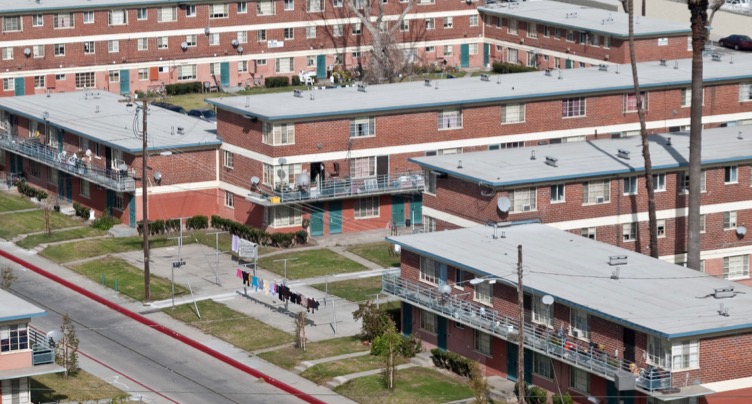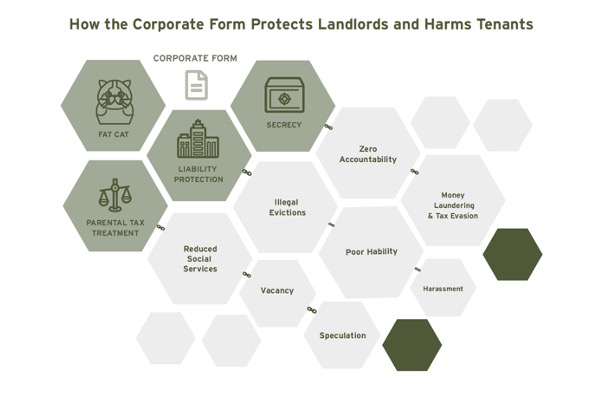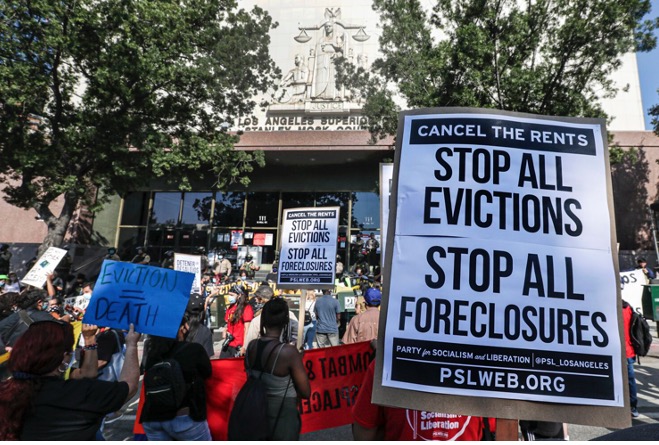Comments
ACCORDING TO LIZ - Again our new Mayor is pursuing the wrong aims for the right reasons.
To keep people from falling into homelessness, tenants must be protected.
Earlier this year, City Council agreed and while they were a bit more nuanced in their approach to smaller, non-corporate landlords, they still seemed removed from the bigger picture.
The Mayor’s new protections will, with certain limitations, prohibit landlords from evicting tenants who fall behind on rent, extend protections for those with unauthorized pets and additional tenants due to COVID-19, and suspend rent increases in rent-stabilized housing (much of which has already been destroyed at the behest of development) through the end of next January.
Given eviction filings increased by 80% across the country in 2022, a trend more likely to increase than not this year, this is hugely important.
One of the exclusions to the Mayor’s parameters, however, does not reflect the reality of living in a city where corporate landlords have been jacking up prices, sometimes usuriously whenever they could.
Shockingly, protections are limited to the Fair Market Rent for units ranging from $1,534 for a studio, $1,747 for a one-bedroom, $2,222 for a two bedroom and on up to $4,170 for a four-bedroom unit. In some areas of the City, these are lower than what was being charged 30 years ago.
One of the more devastating impacts of Covid-era tenant protections was the disproportionate impact on the mom-and-pop landlords – individuals who have invested in fewer than five rental units to subsidize their retirement or provide for their children and grandchildren.
It’s been the mom-and-pop landlords who live in the communities and care for their neighbors and have kept rents low who will be unfairly targeted.
Depending on the ability of their tenants to pay, some of these have had great difficulty paying for owner-provided utilities, upkeep, repairs, and the mortgages on the buildings.
When they can’t pay their mortgages, not only do they lose their nest egg and risk ending up in the street along with their tenants, but it’s also the corporate behemoth landlords who sweep in with no regard for the neighborhood or the people. Just like after 2008.
Since then, real estate profiteers have been scooping up foreclosures from the banks and pre-foreclosure single family homes from their desperate owners, eager to extract every penny possible for their investors. At the same time, they were rapidly acquiring multi-family buildings.
In sterile corporate boardrooms where the only god was Mammon, plans were devised to push up rents and roll back expenses with total disregard for the human beings in those homes and the quality of the neighborhoods.
Corporate structuring by landlords is a double win for the profiteers and a quadruple loss for the City.
Enabled by the creation of favorable tax and regulatory policies by all levels of government, by gaming the tax system, and by rapidly expanding the use of corporate structures to monetize the real estate market, Wall Street and the corporate plutocracy are destroying our City.
Yes, the increase in buildings’ value should increase the tax base but that is without reckoning with the human cost. The moral cost. With the exponentially accelerating costs of coping with the homeless. With businesses being driven away from Los Angeles or refusing to come.
Instead of giving developers even more carte blanche to impact our neighborhoods, the environment and the City’s infrastructure, why doesn’t Madame Mayor exert eminent domain and place the unhoused in those vacant living spaces?
Put controlling their egregious misconduct in the crosshairs of the Mayor in order to take Angelenos’ homes off the Wall Street roulette wheel.
Selective policies that encourage socially beneficial behavior can protect small landlords and local businesses while dinging the malefactors.
Who owns all these empty units, anyway? Perhaps it’s time to resurrect a vacancy tax and subject those who buy but don’t live here, presumably to capitalize on the City’s hot housing market, to double-digit taxation to help cool the market and provide shelter for those who live here.
If they refuse to pay, the City should have the right to seize the properties and add them to the stock of affordable housing to create an infusion of places to live for those displaced when developers commandeered, by hook or by crook, rent-controlled apartment buildings.
Today mom-and-pop owners own less than a quarter of all rental properties. Small companies, perhaps another ten percent, if that.
Corporate landlords own over twelve times as many units in buildings that are over five times larger than do individual owners. Not surprising given the moms-and-pops don’t have the deep pockets of their corporate competitors.
Apartments owned by corporations, not people. Looking to make a return on their investment, not provide homes.
Homes replaced by units too expensive for minimum-wage earners but attractive to higher-income folks forced out of their own neighborhoods by escalating costs.
Such shifts in populations away from their jobs lead to increased traffic congestion and pollution, more accidents, and less quality of life. Landlords who don’t give a damn.
To quote from a 2021 report from Strategic Actions for a Just Economy: “Corporate landlords benefit from structures that support secrecy and limit the ability to hold them accountable for malpractice, especially in the extensive proliferation of limited liability entities as property holding vehicles. When the rental market is dominated by speculation and corporate greed, and where tenants are forced into predatory arrangements, subjected to frequent eviction, unethical fees, and poor conditions, is the product of choices made...”
Such choices inordinately impact the poor, especially in many Los Angeles neighborhoods of color.

And to quote a Knock-LA article on rampant Los Angeles rental unit speculation: Corporate landlords nationwide have been implicated in the production of uninhabitable housing conditions for tenants, increased eviction, displacement, and destabilization of housing, extractive rents and gentrification, harassment and unethical management practices, and speculation, tax evasion, and vacancy.
“Analyzing public data in Los Angeles, we implicate corporate ownership in faster neighborhood rent increases, more frequent use of the Ellis Act to mass evict tenants, higher rates of Department of Public Health code enforcement complaints, [and] speculation.”
With 75% of tenants living in buildings owned by investment vehicles or large landlords, their needs should be treated differently but they also need protection and it would behoove the City to encourage the expansion of this subset of landlords and actively pursue the break-up of the greedy national companies such as Blackstone Group and Equity Residential which are responsible for much tenant abuse.
In general, corporate ownership is not a positive trend in Los Angeles and across the country. Amassing more and more money and power in fewer and fewer hands with greater and greater political leverage. If decent housing is a human right, then corporations whose focus is profit at the expense of all else and avoiding taxes are diametrically opposed to people’s rights, and to the City’s best interests.
When corporate landlords ignore maintenance or abandon buildings to await speculative price increases, they attract increased vagrancy and both white-collar and street crime into our neighborhoods.
Mayor Karen Bass was absolutely right to say in her State of the City address on Tuesday that decent wages help build a stronger, healthier, happier and safer LA. When all Angelenos have living-wage jobs, they will be able to not only to live but to thrive in our City, improving quality of life and safety for all.
But first we need to get our unhoused neighbors off the street without the Caruso approach of removing their rights and dignity and warehousing them.
Mayor Bass has promised to expand on the pandemic’s Inside Safe program that allowed people placed in temporary housing to keep their property and pets and remain with their partners through identifying City-owned properties to use for housing, funding the purchase of motels and hotels to create more affordable housing, rehabilitating units that the Skid Row Housing Trust can no longer manage, and working with apartment owners to facilitate the use of housing vouchers.
AND she needs to work with the small landlords to ensure pride of local ownership and the quality of neighborhoods by tilting the table towards Angelenos. This means increasing taxes on out-of-state conglomerates, imposing significant fines on their passive and overt abuse of tenants, and penalties, proposed above for non-resident owners of vacant properties, to non-resident apartment owners along with powerful provisions to avoid straw figures and other corporate manipulations to dodge the intent of such regulations.
And that the City must have the right, nay, the obligation to seize such properties and facilitate finding small local operators to ensure a continued stock of well-maintained affordable housing with ownership committed to the community.
Perhaps now is the time for the Mayor and City Council to listen to those struggling on the underside of the American Dream.

What place do secretive shell structures have in the housing market? (IMAGE: SAJE)
(Liz Amsden is a contributor to CityWatch and an activist from Northeast Los Angeles with opinions on much of what goes on in our lives. She has written extensively on the City's budget and services as well as her many other interests and passions. In her real life she works on budgets for film and television where fiction can rarely be as strange as the truth of living in today's world.)















